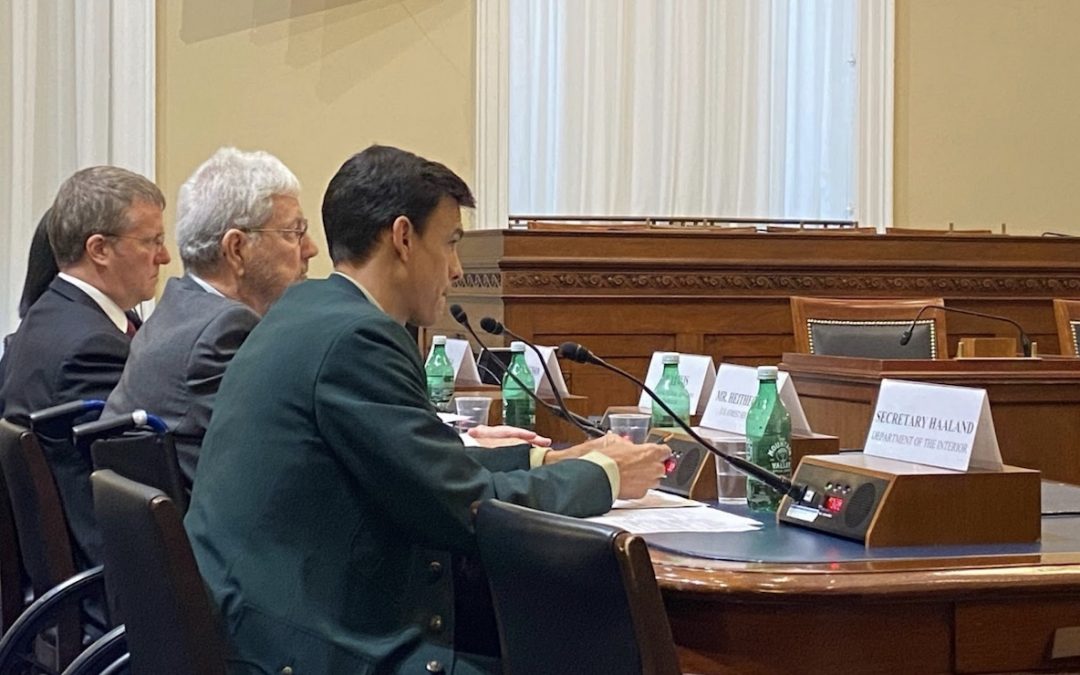Rep. Bruce Westerman of Hot Springs presented legislation in D.C. Thursday to build roads along the entire US-Mexico border, the idea being that the roads would make the area easier to patrol.
“This is common sense legislation that will secure our federal border lands and stop putting Border Patrol agents in harm’s way,” Westerman said.
The Forest Service doesn’t seem convinced this is a good solution. In written and live testimony, the U.S. Forest Service noted the expense of building these roads is high, and the extra traffic would put a damper on the experiences of visitors to federal land close to the border.
Westerman, who chairs the Natural Resource Committee, brought up his bill, “Ensuring Border Access and Protection on Federal Land Act,” in the Federal Lands Subcommittee because 35% of the roads he wants to build would cut through federal lands.
Troy Heithecker, associate deputy chief of the U.S. Forest Service, said much of the terrain along the southern border is steep and rocky, so “not suitable for roads.”
Westerman dismissed Heithecker’s testimony.
”We’ve built a lot of roads in some very treacherous terrain around the country. But if you don’t have access, you’re just having an open area with no way to enforce the law,” Westerman said.
Heithecker said the Forest Service lacks the budget to meet Westerman’s deadline to build the 45 to 55 miles of roads that would be in national forests within five years. The Forest Service already has significant backlogs on road construction.
One criticism of Westerman’s road project plan is that it would interfere with a popular recreation area. “The bill proposes limiting access to the area along the Coronado National Forest and Mexico border. However, it is a popular area for the public to recreate and maintaining public access is important,” according to written testimony submitted by the Forest Service. The Coronado National Forest stretches through New Mexico and Arizona, and attracts between 1.4 and 2.9 million visitors annually, according to the forest’s website.
To drive home his concerns around border security, Westerman shared his own experiences visiting the border.
“I actually was down there and saw migrants come across with three backpacks full of drugs and the Border Patrol caught them. They dropped the drugs and two of them made it back across before they could arrest them. It happens every day, every hour,” Westerman said.
Ranking member Joe Neguse, D-Colo., expressed frustration with Westerman for trying to add responsibilities for the National Park Service and U.S. Forest Service at a time when Republicans are proposing to slash the agencies’ budgets.
“We shouldn’t be cutting funding for those agencies either. And yet, that’s exactly what the Republican House conference has proposed for the next fiscal year. Drastic, deep, draconian cuts to the Department of Interior, to the National Park Service, to the Forest Service,” Neguse said.
The committee also discussed legislation introduced by Rep. Nicole Malliotakis, R-N.Y., to reduce environmental degradation on the border. A previous hearing of the full Natural Resources Committee centered on a lawsuit signed by Malliotakis to prevent migrant shelters from being built at Floyd Bennett Field, land protected by the National Park Service.
The Subcommittee ended the hearing abruptly as House Republicans convened to discuss how to address the third consecutive day of voting for a new speaker of the House. Since Rep. Kevin McCarthy of California was voted out of the job, committee business has fallen to the wayside. New bills cannot move through the House until a speaker is elected. A simple majority is required to win.
Westerman received one vote to be speaker in Wednesday’s vote, but cast his own votes for Jim Jordan.


